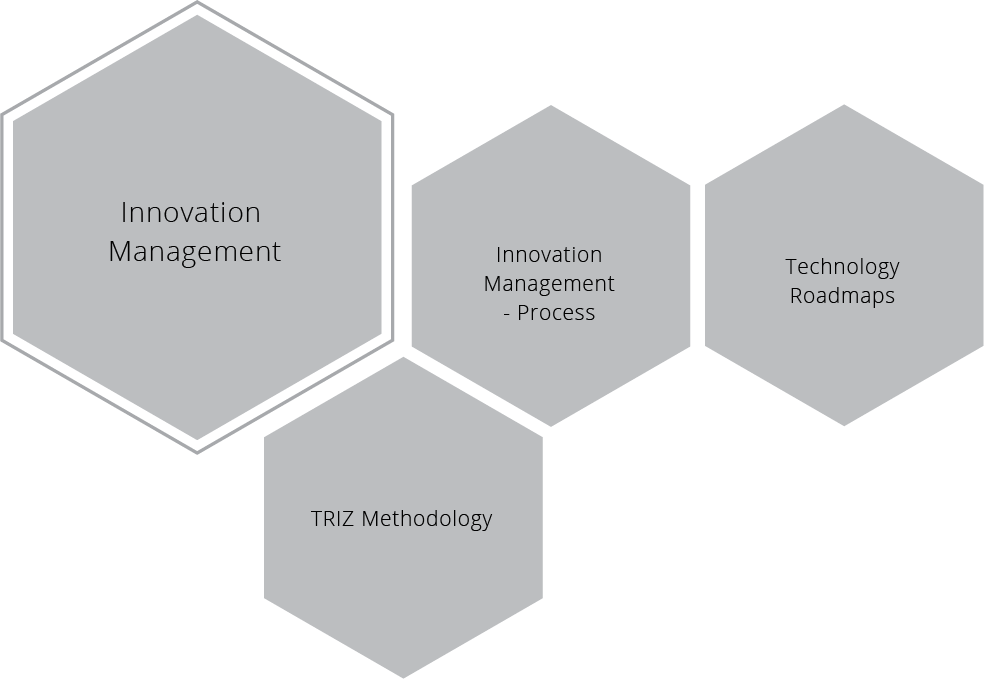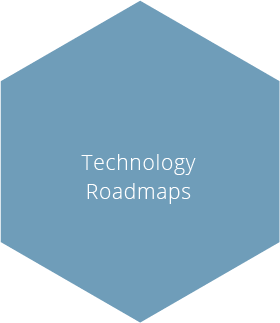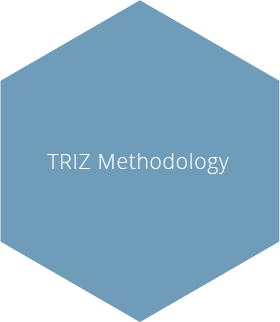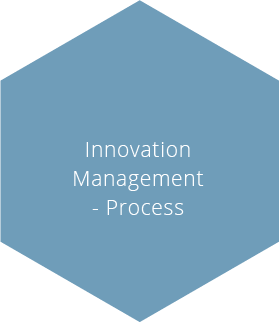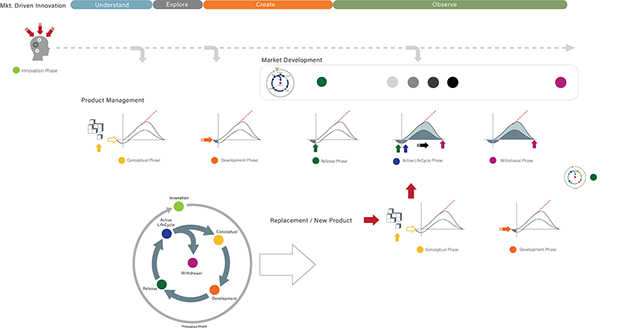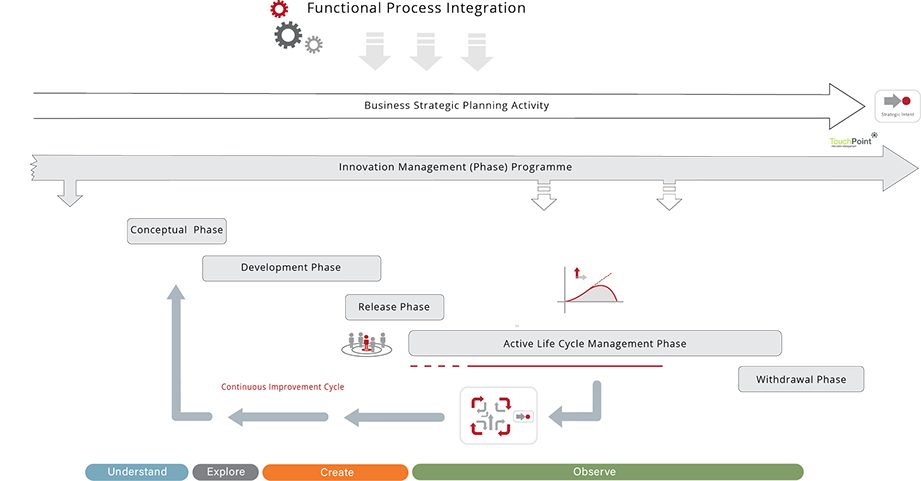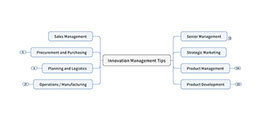Glossary
Logout
©Copyright Arcturus 2022, All Rights Reserved.
7
Terms & Conditions
|
|
|
|
Security & Privacy
Contact
INNOVATION MANAGEMENT
'Innovation is not just about having good ideas, it's about managing new ideas, improving old ideas, understanding and anticipating markets and technologies'
Innovation ultimately means you keep ahead of the competitors via a differentiated product offering (or the way the product is offered). New technologies and new products / services will provide far more business opportunities than by any other means. Innovation also means applied creativity, in other words, an idea is not ‘innovative’ until its representative of something ‘actual’.
The Innovation Management phase is primarily an activity for both generating and managing strategically aligned business ideas. Concepts and products emerging from this phase will be screened accordingly for (target market) suitability before being presented to a peer review group for acceptance and further development.
The type and content of the proposed idea will ultimately determine how it will be taken forward into subsequent phases of the product management process hereinafter. For example, a successful ‘New Product’ idea from the IMP phase will proceed to the Conceptual and Planning Phase and thereafter subsequent phases within the overall process. Alternatively, if the idea can be utilised directly in an existing product it will follow an appropriate route via the product enhancement process and ultimately join its product host in the Active Life-Cycle Phase.
Successful Product Innovation requires more than the ability to create ideas and good design. It requires a competitive organisation. Success in today’s extremely competitive environment requires excellence and focus throughout the organisation — all areas of activity. Such as strategy, product management, design, manufacturing, sales and service must contribute to the success of a new product. The sum of the parts in terms of capabilities must align to genuine core competencies.
Long-term innovation may mean spending time and money 5 to 10 years ahead of market introduction.
This is a real challenge as market research is either based on systematic interviewing or on the interpretation of quantitative and qualitative information gathered from the actual market. The best we can expect from market research is an intelligent and realistic extrapolation of trends or the spotting of less visible undercurrents.
Real growth and new opportunities have always come from technical or technological breakthroughs resulting from the vision of those who were directly involved in the field where the breakthroughs took placed, and the vision of those who were responsible for funding the activity. It is only when these two visions meet in mutual confidence that there is any chance of success. In both article teams and business units, this climate of mutual confidence and understanding is a prerequisite for sustaining the long-term effort needed for a technical breakthrough.
Following the competition means being always too late. Draw your own lines into the future.
Keeping a sharp eye on the competition is essential. A constant watch on the most dangerous competitors must provide evidence about their marketing strategy, their product policy, their management structure and their successes and failures. This may provide a basis for anticipating the future actions of the competition, as an alternative for reacting to existing products. Reacting to existing products means taking a decision that the competition has already taken between one and three years ago and the result will be a backlog in the finished product programme of two years or more. This is not a valid strategy for catching up. The only realistic way out of this scenario is to draw a strategy line into the future that crosses the projected line of the competition at some point. Imitating the competition is one of the most dangerous pitfalls. It inevitably leads to a disoriented organisation.
Innovation Management - A Perpetual Activity.
As you can see from the diagram below, the Innovation Phase completely surrounds the other 5 phases of Product Management and is by definition a perpetual activity - it should definitely not be seen as a 2 week 'think and sprint' prior to a new product development project. Strategically, the role of Product Management is to manage the Product across it's entire life cycle with the objective of maintaining its product position within the target market. Depending upon the market itself, this will inevitably require enhancements and tweaks that ensures it remains competitive as long as possible against competing offers.
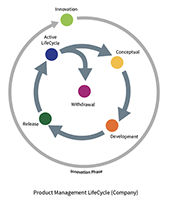
|Product Management Phases Vs Elements Alignment
Innovation Phase process alignment - UECO Concept alignment - RADAR Integration (continuous Improvement)
|Innovation Management Phase Priorities
Innovation Phase Priorities

Conceptual Phase Priorities

Development Phase Priorities

Release Phase Priorities

Active LifeCycle Phase Priorities

Withdrawal Phase Priorities

|Innovation Management Tips and Planning


Innovation is a critical success factor and key to the development of Competitive Advantage - Creative thoughts can be developed and delivered from both the Internal and External environment.
Innovation Management Plan - A perpetual phase in the PMM Process...


Innovation - Development Cycle
377x343.png?crc=4231600010)
|Innovation and the RADAR loop

The RADA(R) Loop, as described below is a powerful control loop that drives strategic action and continuous improvement.
External RADA(R) Loop
External RADA(R) Loop
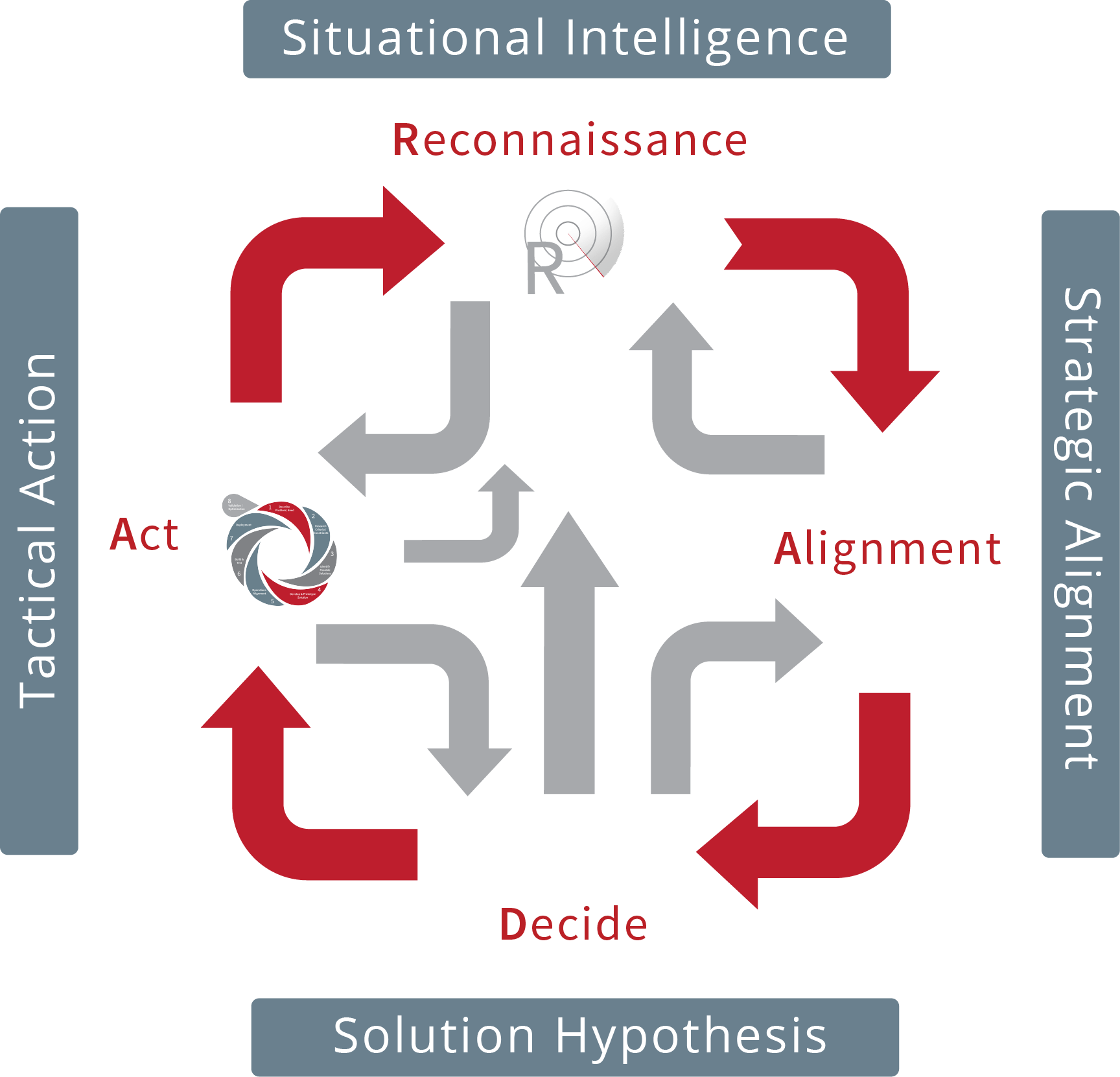
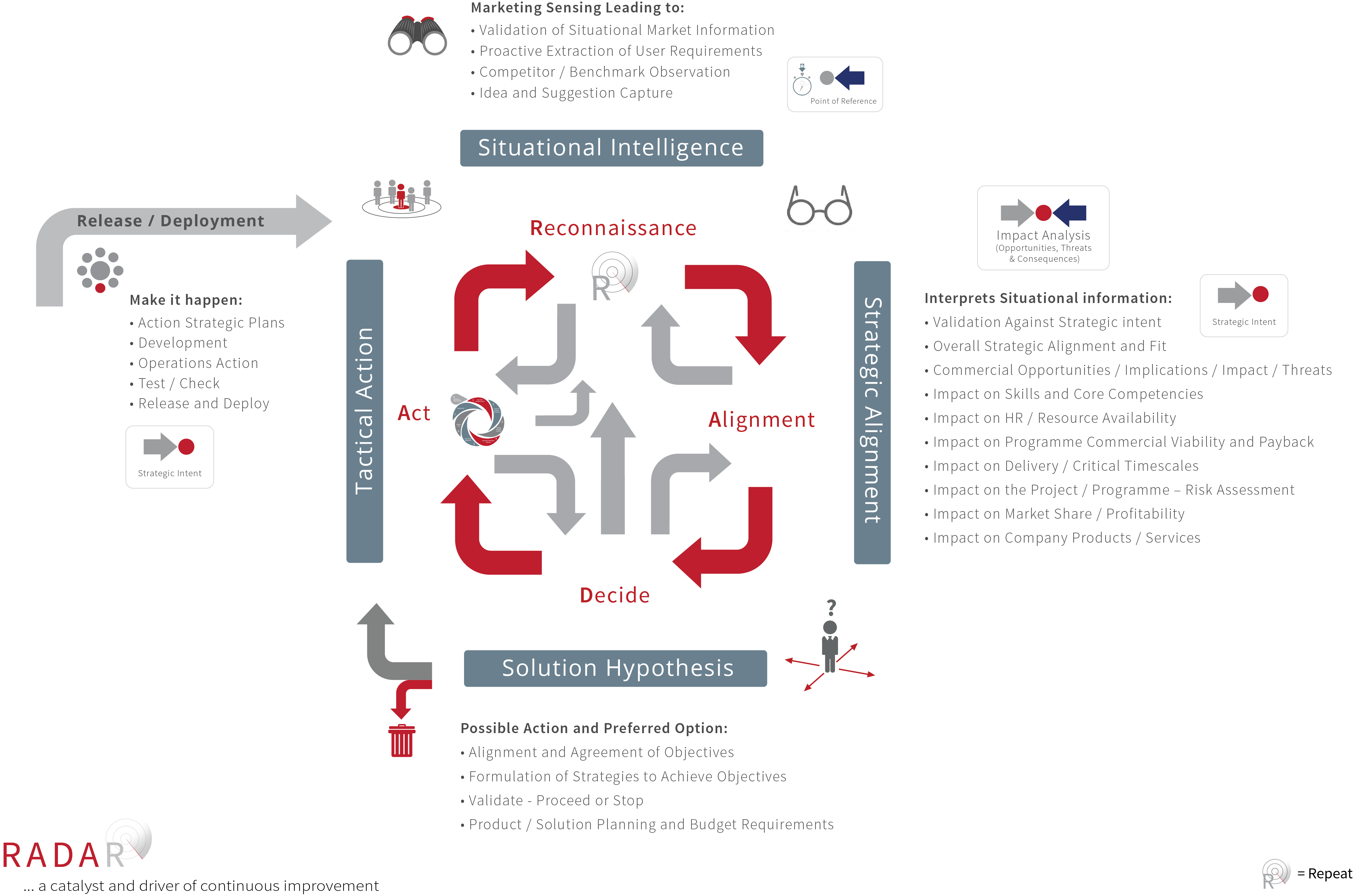
Internal RADA(R) Loop
Internal RADA(R) Loop
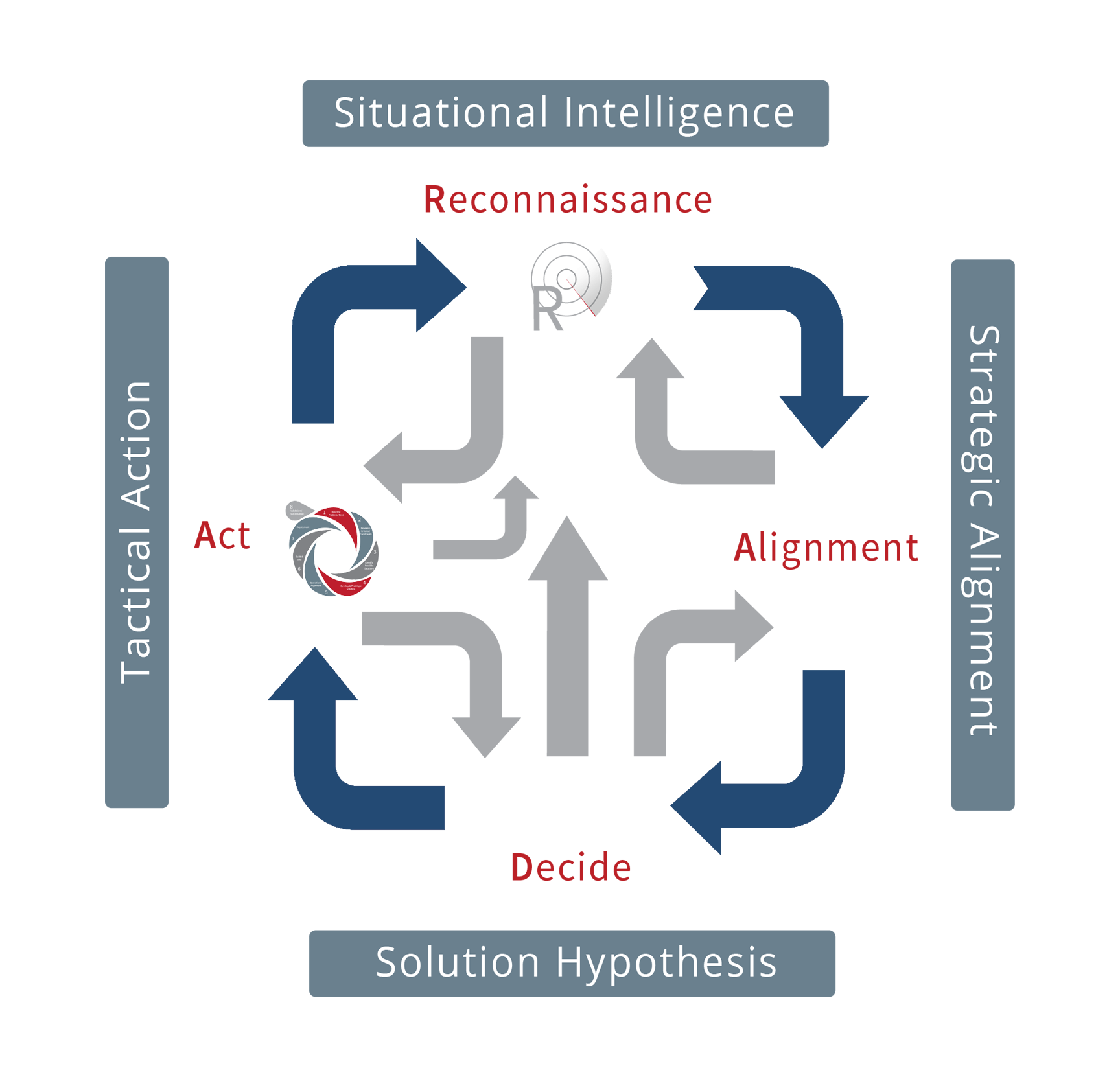
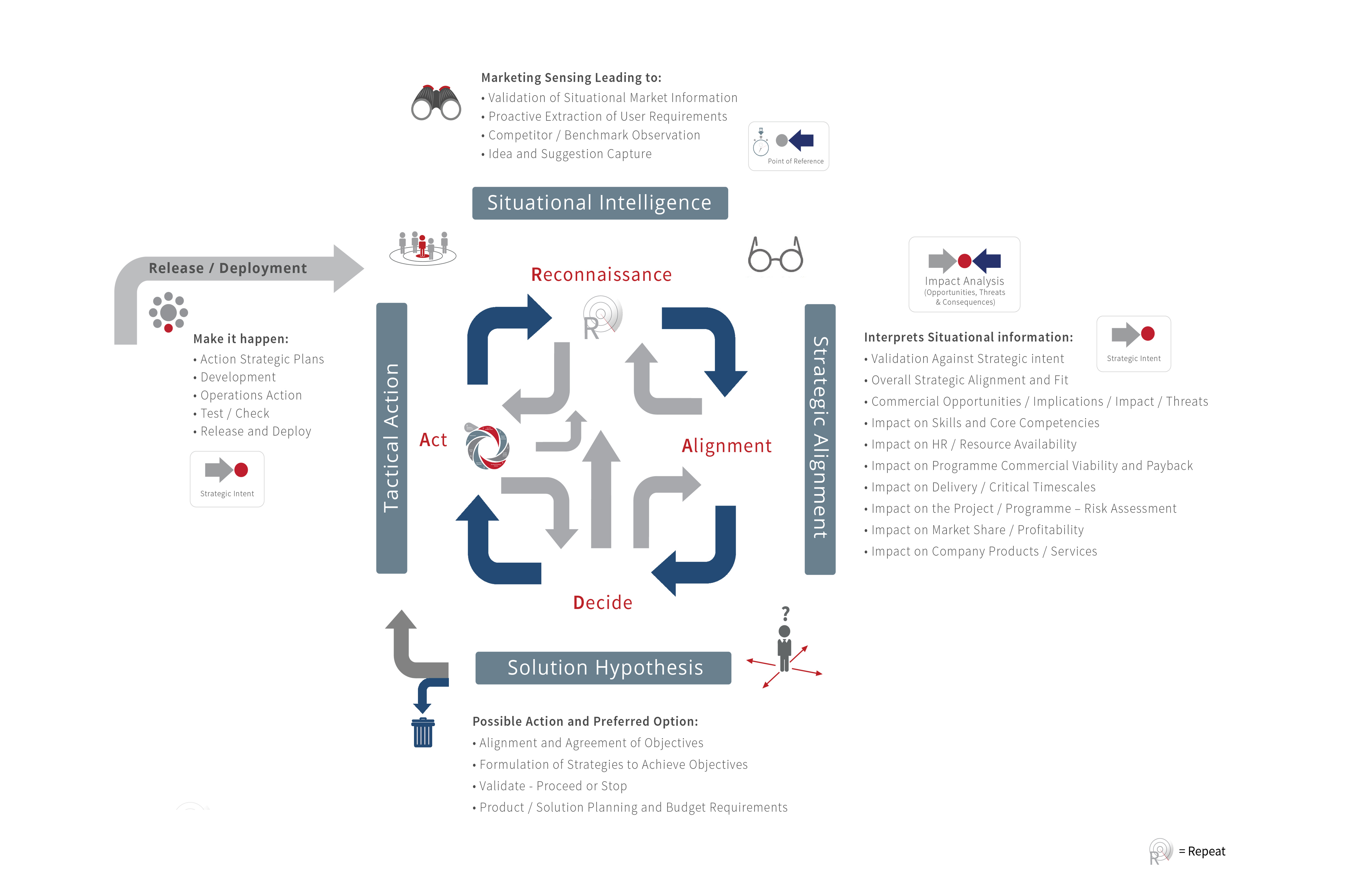
|Practitioner Training & Support - Innovation Management
The IPM practitioner series, is a definitive and integrated training programme for management professionals operating in the Product Management arena. So whether you’re the Managing Director, Product Director, Product Manager or a member of the Multidisciplinary Team we are confident that you will find this particular training series to be one of the best available and an invaluable asset to both you and your company.
In summary, the professional content contained within these courses will undoubtedly appeal to the seasoned Product Manager but should equally appeal directly to a Manager who has recently been promoted / joined the profession. If you have previously attended our 3 or 4 day event in the past, please be assured that the PM practitioner course is a perfect complement and extension to the original material provided and once again with that all important practical bias.
‘Our aim is to deliver ‘real world’ course content that in turn can be directly applied on return to the work place... to achieve this objective our courses are complemented by proprietary software business models (as an integrated part of the course)’.
|Innovation Management - Professional Support







